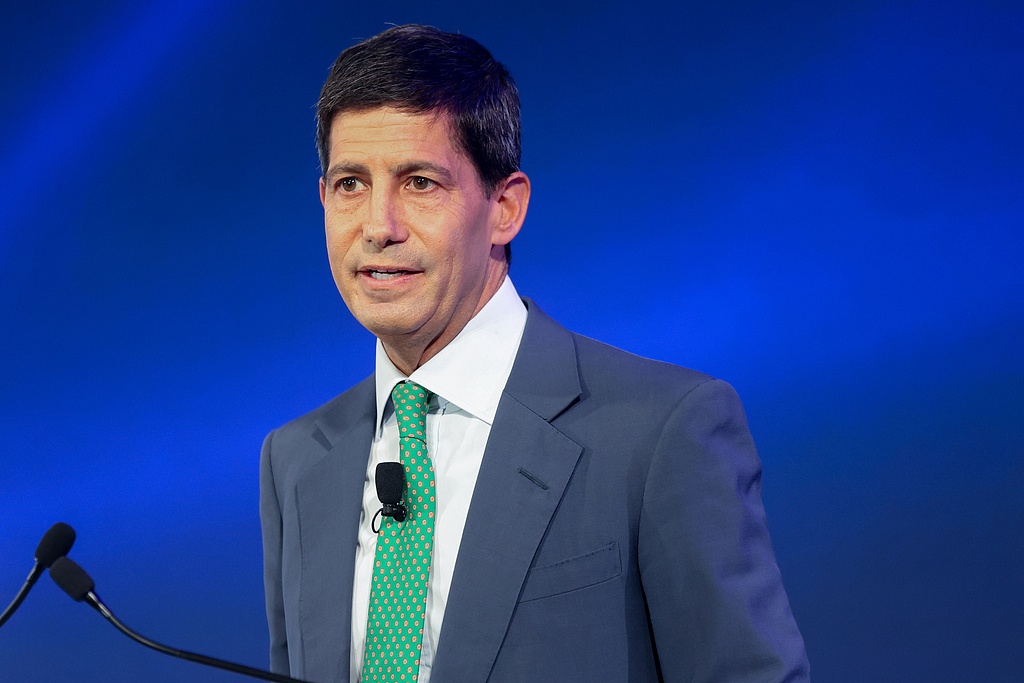Will Kevin Walsh be the next chairman of the Federal Reserve? Will he become Trump's puppet? Will he "follow the order" to cut interest rates?
On June 25, U.S. President Trump said that he would elect the next chairman of the Federal Reserve within three or four people.When asked about the popular candidate, former Federal Reserve Governor Kevin Walsh, Trump said he received high praise, suggesting he might be the next candidate to succeed.

Powell was nominated as chairman of the Federal Reserve during Trump's first presidential term. He officially took office in February 2018 and was re-elected in May 2022 during former President Biden's administration, with a term that will expire until May 2026.Since the beginning of this year, Trump has been dissatisfied with Powell's delay in cutting interest rates, and has repeatedly expressed in public that he would "replace Powell."However, according to relevant laws and regulations, after the President of the United States nominates a candidate for the chairman of the Federal Reserve, he needs to be approved by the Senate and cannot be simply replaced.
The rules don't work, and Trump has begun to find the next chairman of the Federal Reserve. The name of former Federal Reserve Governor Kevin Walsh is beginning to be mentioned more and more.
Will Kevin Walsh be the next chairman of the Federal Reserve?Will he become Trump's puppet?Will he "follow the order" to cut interest rates?
Hawk Insight brings you a piece.
Walsh and Trump
Washi's relationship with Trump dates back to 2017.Before Trump appointed Powell at that time, Wash was already a strong contender for the chairman of the Federal Reserve, but was narrowly defeated due to lobbying by then-Treasury Secretary Mnuchin.Since then, Walsh has not stayed far from the core of power: his father-in-law, Ronald Lauder (heir to the Estee Lauder Empire), was Trump's close friend and Republican donor for decades. The wealth and political network built by this marriage has been jokingly called by the media "the art of marrying into a wealthy family and rising up the ladder."
After the 2024 election, Wash became more deeply involved in Trump's transition team, frequently advised on economic policies and personnel arrangements, and finally entered the candidate list of finance ministers as a "dark horse" and was even invited to Mar-a-Lago Manor for secret talks.Although the position of treasury secretary eventually fell to Besant, as a loyal hero, the Trump team has planned a more sophisticated arrangement: first let Wash accumulate influence in the Treasury Department, and then take charge of the Federal Reserve after Powell leaves office in 2026.
Walsh's position
If you look at Walsh's policy prism, the consensus and rift between him and Trump are equally clear.
On the issue of central bank independence, Walsh emphasized that the Fed should have "operational independence" while supporting the president's right to severely criticize it.In May 2025, he bluntly said at the Reagan Forum: "When monetary policy results are not good, the Federal Reserve should be seriously questioned...…Central banks are the 'scapegoat' of politicians.He even ridiculed the media's over-protection of the Fed: "Grow up and be strong!”
But in terms of trade policy, Washi's belief in free trade runs counter to Trump's tariff stick.In 2018, he warned that "economic isolationism will harm growth prospects" and even advocated resisting the "wave of protectionism" in a column in the Wall Street Journal.What is intriguing is that he recently defended Trump's tariffs, saying that the 10% tariff has only a "small, one-time effect" on inflation and may even be offset by the deflationary effects of deregulation.
Walsh has also repeatedly expressed dissatisfaction with the Fed's current policies
He dismissed the US$7 trillion balance sheet as a "trillion-dollar redundancy" and pointed out that it concealed the true cost of fiscal deficits and put the United States on a "dangerous trajectory"; he criticized Bernanke's communication strategy as "excessive voice", advocated a return to the tradition of "never explaining or apologizing", and even opposed officials publishing economic forecasts, believing that data reliance was "worthless"; he even blamed inflation on the central bank's condoning of government spending, saying that "the wounds are mostly the result of self-injury."
Walsh's views accurately match Trump's demands: cutting interest rates to promote growth, weakening financial supervision, and reducing central bank functions.The most damaging thing is his deconstruction of the role of the Federal Reserve-at the G30 meeting, he accused the central bank of becoming a "general institution of government", addicted to non-core issues such as climate justice, and causing inflation to get out of control-analysts said that this criticism provided theoretical ammunition for Trump's political intervention.
Walsh's resume is not perfect.
During the 2008 financial crisis, his decision-making record as the youngest director (aged 35 at the time) was criticized: in March 2007, he still touted the prosperity of credit default swaps and underestimated derivatives risks; in October 2008, he questioned fiscal stimulus when the economy was on the verge of collapse; in 2009, he called for the withdrawal of easing to prevent inflation on the eve of a peak in unemployment-these "slow" judgments were regarded by critics as fatal flaws.
His academic background is also a target: he has a doctorate in law from Harvard and lacks training in orthodox economics, which contrasts with scholarly chairmen such as Bernanke and Yellen.But Trump may be interested in this kind of "unconventional": the practical sense shaped by Wall Street investment banking experience (seven years at Morgan Stanley), coupled with his fire-fighting experience as Bernanke's "Wall Street messenger" during the crisis, may be better than the ivory tower theory to cope with the current dual dilemma of inflation and trade war.
